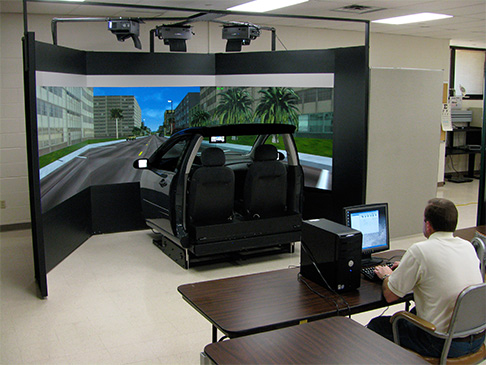Marc sees patients who have been referred by physicians, psychiatrists, orthopedists, optometrists and a host of other medical professionals in the VA Palo Alto Hospital. Through detailed studies working closely with patients with multiple injuries (or polytrauma), Marc has been able to better understand the factors contributing to limitations and then determine appropriate therapeutic interventions. They have even added eye-tracking technology and EKGs to the simulator to monitor behavior as well as physiological responses.
“The DriveSafety simulators allow us to set precise scenarios repeatedly with a wide variety of patients,” adds Marc Samuels. “This repeatability across a broad sample aids in our research and helps limit the uncontrollable variables that exist on the open road or even in a parking lot.”
With the simulators, Marc can tailor fit the scenarios and the triggers to check specific reactions and then zero in on patient specific appropriate training.
For patients suffering from PTSD or TBI, the simulator is a welcome tool because it can allow patients to do something active to assess where they are functionally. This can help establish a clearer roadmap for moving forward in their individualized rehabilitation program. Once therapists know precisely where the patient’s functional challenges are, therapists can then guide them in overcoming those issues and potentially regain their driving competence. What’s more, they can do all of this in a setting that doesn’t put them or someone else at risk.
“I’m continually learning new things in the area of injury recovery,” says Marc. “The DriveSafety simulators are valuable tools in the evaluation and therapeutic intervention process with our veterans.”
show less


